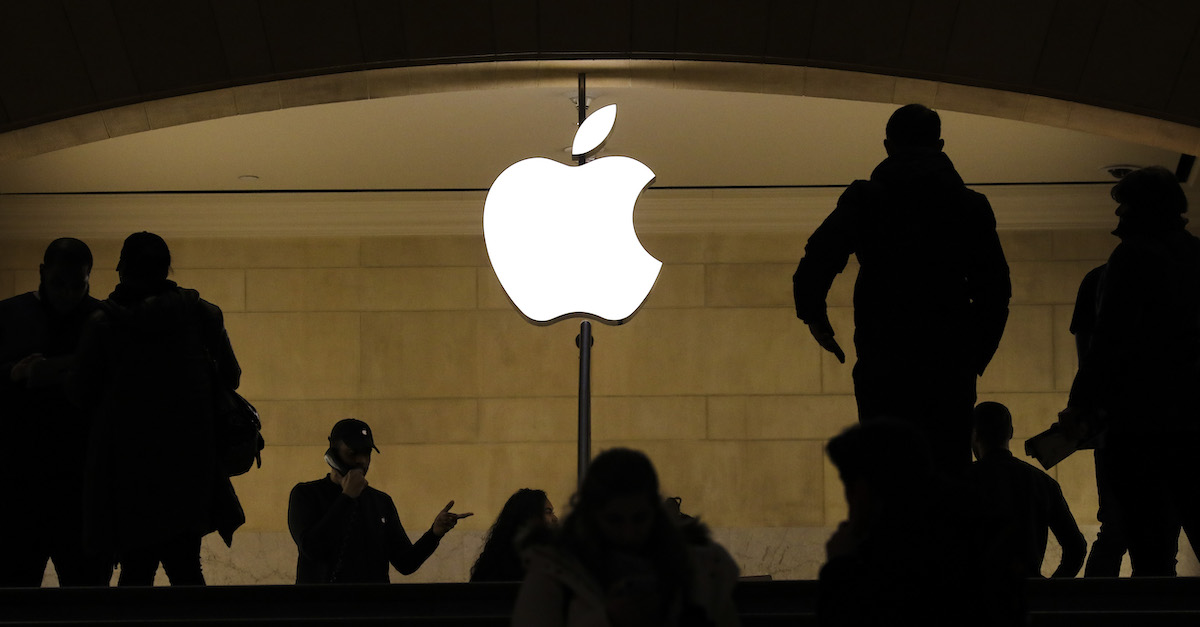
People shop in an Apple retail store in Grand Central Terminal, Jan. 29, 2019 in New York City. (Photo by Drew Angerer/Getty Images)
Apple Watches boast a number of useful functions, including monitoring step counts, making calls, sending texts, and measuring one’s blood oxygen levels.
A new class action lawsuit filed in the Southern District of New York claims that the latter function, known as a blood oximeter, does not work as well for Black people — and that its poor functioning on people of color amounts to consumer fraud.
“For decades, there have been reports that such devices were significantly less accurate in measuring blood oxygen levels based on skin color,” the lawsuit claims. “The ‘real world significance’ of this bias lay unaddressed until the middle of the Coronavirus pandemic, which converged with a greater awareness of structural racism which exists in many aspects of society.”
With Covid-19, the residual effects of this long-observed phenomenon became more stark.
“The conclusion was that ‘reliance on pulse oximetry to triage patients and adjust supplemental oxygen levels may place Black patients at increased risk for hypoxemia,'” the complaint states. “Since health care recommendations are based on readings of their blood oxygen levels, white patients are more able to obtain care than those with darker skin when faced with equally low blood oxygenation.”
Filed on Christmas Eve, New York resident Alex Morales filed the proposed class action complaint on behalf of all Empire State consumers who bought the watches during the statutes of limitations. Morales also sued on behalf of residents of North Dakota, Wyoming, Idaho, Alaska, Iowa, Mississippi, Arkansas, North Carolina and Utah, under those states’ consumer fraud laws during the relevant statute of limitations periods.
“Plaintiff was aware the Product purported to measure blood oxygen levels and he believed it did this without regard to skin tone, which was relevant to him based on his skin tone,” the lawsuit states. “Plaintiff expected the product would not incorporate biases and defects of pulse oximetry with respect to persons of darker skin tone.”
As a result, Morales claims, Apple was able to sell the watches at a “premium” price of “no less than $400” — more than it would have had consumers known about the defects of blood oximeters.
“While traditional fingertip pulse oximeters are capable of measuring blood oxygen levels and heart rate, wrist-worn devices like the Product determine heart rate, as blood oxygen measurements from the wrist are believed inaccurate,” the complaint states. “Algorithms designed for fingertip sensing are inappropriate when based on wrist measurements, and can lead to over 90% of readings being unusable.”
“Though one recent study concluded the Product was able to detect reduced blood oxygen saturation in comparison to medical-grade pulse oximeters this fails to recognize the failings of pulse oximetry in general with respect to persons of color,” it continues.
Morales alleges violations of New York General Business Law and State Consumer Fraud Acts. The lawsuit also accuses Apple of breaches of express warranty, fraud and unjust enrichment.
Apple did not immediately respond to an email requesting comment.
Morales is represented by attorney Spencer Sheehan.
Read the eight-page lawsuit here.
Have a tip we should know? [email protected]